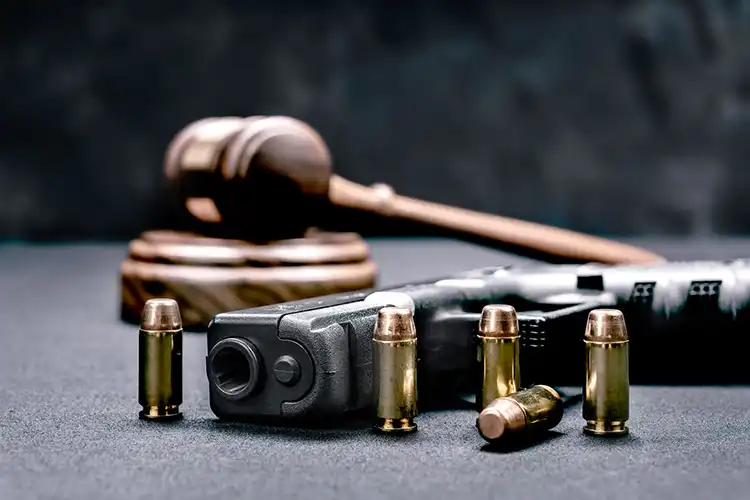Texas has long been at the forefront of states with permissive firearm laws. Whether you’re a resident or a visitor, understanding Texas gun laws ensures you’re on the right side of the law while exercising your Second Amendment rights. If you’re wondering whether you need a license to carry a gun in Texas in 2025, this guide will walk you through the current regulations, explain the nuances of permitless carry, and explore any potential legislative updates you should know.
Current Texas Gun Laws
Texas has some of the most lenient gun laws in the United States. Here’s an overview of the current framework governing gun ownership and carrying firearms in the Lone Star State.
Gun Ownership in Texas
Texans have the right to purchase and own firearms without a license. Whether you’re buying a handgun, shotgun, or rifle, you must meet the federal requirements:
- Be at least 18 years old for long guns and 21 years old for handguns.
- Pass a background check conducted by a licensed firearm dealer.
- Not have any federal or state prohibitions, such as felony convictions or active restraining orders.
Private sales, however, are not subject to background checks under Texas law.
Open and Concealed Carry Laws
Texas does not require a permit for open carry of long guns, such as rifles. For handguns, you must meet specific criteria (permitless carry or license to carry), depending on how you intend to carry the firearm.
What Is a License to Carry (LTC)?
Although Texas allows permitless carry (more on that later), obtaining a License to Carry (LTC) still comes with significant benefits.
Requirements for Obtaining an LTC in Texas
To qualify for an LTC, you must meet the following requirements:
- Be at least 18 years old.
- Pass both a background check and fingerprinting.
- Complete a Texas Department of Public Safety (DPS)-approved training course. This includes classroom instruction and a shooting proficiency test.
Applicants must not:
- Be a convicted felon.
- Be convicted of certain violent misdemeanors in the past 5 years.
- Be subject to protective or restraining orders.
While permitless carry has simplified some aspects of carrying firearms, holding an LTC has advantages including:
- Travel reciprocity: An LTC is recognized in roughly 37 states.
- Streamlined purchases: LTC holders bypass the background check when making firearm purchases from licensed dealers.
- Expanded carrying rights: Many locations in Texas allow LTC holders to carry, while those without an LTC may be restricted.
- Legal Protections: Texas law provides specific legal protections for LTC holders that are not available with permitless carry.
What Is Permitless Carry in Texas?
Permitless carry, often called “constitutional carry,” came into effect in Texas on September 1, 2021. Here’s what that means:
Permitless Carry Defined
Permitless carry allows eligible individuals to carry a handgun (concealed or openly in a holster) without obtaining an LTC. However, you must meet the following criteria:
- Be 21 years old or older.
- Not have any convictions under federal or state laws that disqualify you from possessing a firearm.
- Not be intoxicated while carrying.
- Not be a member of a criminal street gang.
- Not be subject to a protective order.
Permitless Carry vs. Constitutional Carry
Permitless carry in Texas is often referred to as constitutional carry because it aligns with the belief that the Second Amendment provides all the authority needed to carry a firearm. However, these terms are not entirely interchangeable. States may have specific eligibility criteria for permitless carry, as Texas does, which some argue complicates the “constitutional carry” ideal.
Will Texas Gun Laws Change in 2025?
Texas prides itself on robust Second Amendment rights, but no legislation stays static forever. Below are bills that have been introduced that would affect the LTC:
- HB2470: Officially lower the age from 21 to 18 for LTC eligibility
- 18-20 year olds are currently eligible because of a court ruling, but Texas law has not been changed yet.
- HB4818: This bill proposed an enhanced license designation for LTC holders, potentially allowing them to carry in more locations than those without the enhancement.
- SB890: This bill focused on the issuance of LTCs to certain active and retired judicial officers.
Stay updated with the Texas Department of Public Safety website for any official announcements regarding firearms laws in 2025.
Where Are Guns Prohibited in Texas?
Even if you meet the criteria for carrying a gun in Texas (permitless or with an LTC), there are restrictions on where you can legally bring a firearm. Here are some of the prohibited locations:
- Public schools, colleges, and universities (exceptions apply to LTC holders in certain university areas).
- Polling places on election days.
- Courtrooms or offices used by the court.
- Secured areas of airports.
- Businesses that derive 51% or more of their revenue from alcohol sales for on-site consumption.
- Hospitals or nursing homes (unless authority is granted).
- Private properties or establishments that display “30.06,” or “30.07” signs banning firearms.
Violating these restrictions can result in legal penalties, even if you otherwise meet the carry requirements.
Why Staying Updated on Gun Laws Matters
Understanding Texas gun laws is essential for anyone who values their Second Amendment rights. Laws evolve over time, reflecting societal changes, safety concerns, and legislative priorities. Whether you’re a Texan or a visitor, being informed keeps you compliant and safe.
If you already have your LTC and want to stay up to date with current laws and regulations, please take a look at our online LTC Refresher Class.
Having the right knowledge about gun laws not only protects yourself but also maintains trust and safety within your community.
To learn more about the Texas License to Carry a Handgun, please visit our LTC page HERE.





